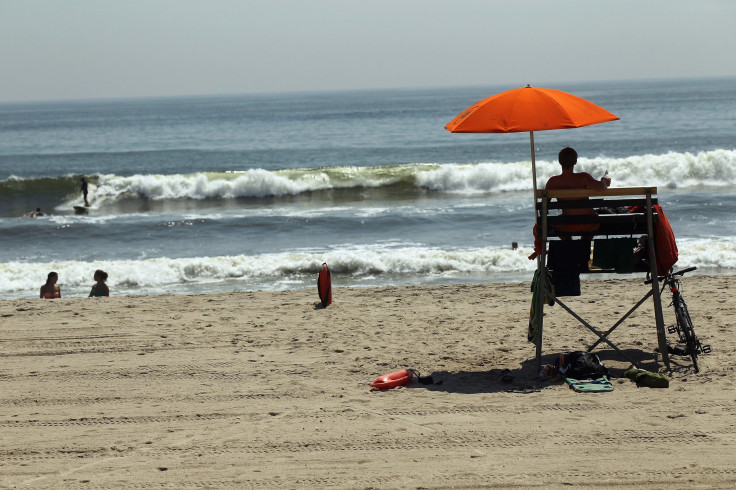Jobs Report 2015: What Happened To Summer Jobs For Teens?

For many, it was a part of growing up. Whether stirred by boredom, necessity or the desire for a little extra spending money, about half of all Americans between ages 16 and 19 used to work jobs during the summer. Today, less than one-third of them do. Thursday's jobs report shows the U.S. economy added 223,000 payroll positions in June, but only a small portion of them were seasonal jobs for teenagers.
That’s due in large part to the Great Recession.
“Young people are always deeply hurt when the economy worsens,” says Martha Ross, a fellow at the Brookings Institution who co-authored a report on the subject last year. “If they’re competing with a worker who’s ‘trading down,’ they’re gonna lose.”
In other words, if a McDonald’s manager needs to hire a cashier and has to choose between a 17-year-old high-schooler with no job experience and a laid-off manufacturing worker in his fifties, he’ll probably hire the latter. Not only is the older guy a more reliable bet -- presumably more accustomed to taking orders and communicating with co-workers -- he can also promise to stay longer than three months.
There was nothing unique about the impact of the most recent crisis on young people; historically, teen employment rises during periods of economic growth spurts and falls during recessions. The latest one was just particularly harsh. And during rough economic times, says Ishwar Khatiwada, an economist at Drexel University’s Center for Labor Markets and Policy, “teens get left behind.”
It’s not that they’re lazy, says Khatiwada, who published a study in March on teen summer jobs. He points to the group’s high “underutilization rate” -- a cumulative measure of the number of teens who are unemployed, underemployed or had given up looking for work.
By the same token, as more of the general population goes to work, teens will follow, says Khatiwada, who predicts a slight uptick in the number of 16 to 19-year-olds employed this summer. Still, the glory days of the summer job are light years away. In the future, he says, “we don’t fully know what’s going to happen.”
That’s because at least a couple of other factors are driving the drop in summer jobs. Indeed, in the decade before the Great Recession hit, the teen summertime employment rate sputtered notably, dipping below 50 percent in 2000 and never recovering.
‘Tis The Season For Internships...and Summer School
Increasingly, school isn’t out for the summer. More and more teens are taking classes during the dog days, sometimes earning credits for high school, sometimes for college.
The rising cost of higher education provides a financial incentive for students to graduate from college as early as they can, explains Jeff Gagne, director of policy analysis at the Southern Regional Education Board, a nonprofit that works with state governments across the South. It takes students less time to graduate if they’ve knocked out a bunch of credits -- spending a summer at a local community college instead of Baskin-Robbins -- before even setting foot on campus.
At the same time, Gagne says, secondary schools increasingly encourage struggling students to enroll in summer courses instead of letting them fail or drop out. They’re responding, in part, to policies like the No Child Left Behind Act that are designed to boost high school graduation rates. “They realize that in order to get students out of high school on time, if they’re at risk or falling behind in some subject, you’ve got to provide intensive support somewhere, and summer’s a good time to do that,” says Gagne.
Internships are also en vogue, especially for young people itching for a professional career straight out of college. Many are unpaid.
Madison Pffaf, 20, is a third-year student at the University of North Carolina and plans to graduate next year. She’s worked jobs and internships over the past few summers. A computer science major who’s helping pay tuition, Pfaff says she’s always made sure to take paid ones, because she can’t afford not to. “I’ve definitely turned down opportunities that I think would benefit me in the future,” Pffaf says. “There’s a ton of non-paying internships and the places you can intern for no pay are awesome.”
With an eye toward the unforgiving labor market, some of her classmates have taken the plunge.
“A lot of my friends,” she says, “they just wanted an internship, no matter where it was, what they were doing, if they were paid or not. The power of saying you are in an internship and doing something valuable for a company, that seems to hold a lot more weight in job applications than being a summer camp counselor or working fast food or waiting tables.”
© Copyright IBTimes 2024. All rights reserved.





















